An interface in programming is a collection of method headers and constants, requiring classes that implement it to define all specified methods. Interfaces can extend other interfaces, allowing for method inheritance. Declared constants within interfaces are implicitly public, static, and final, while methods are public and abstract by default.
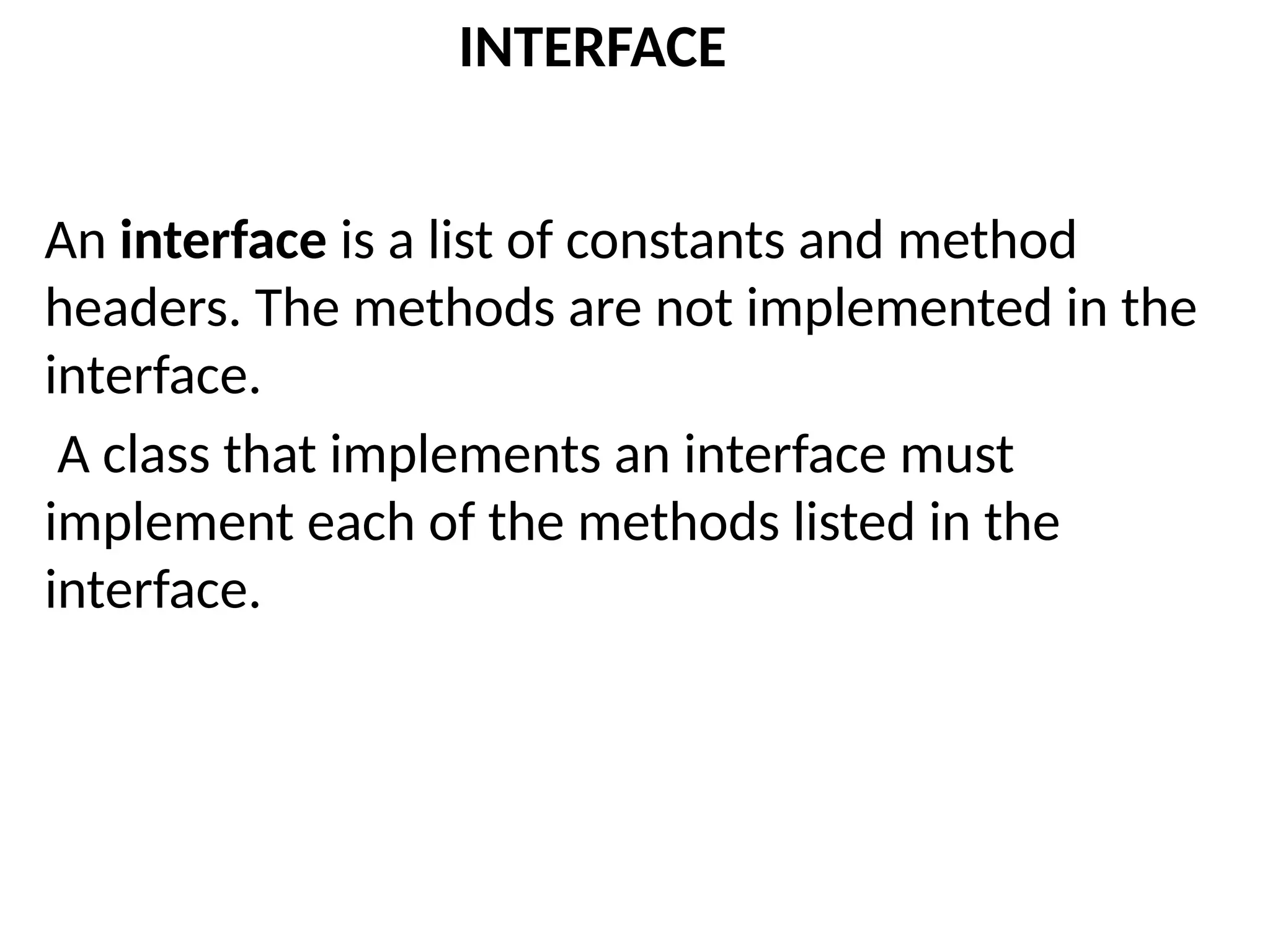
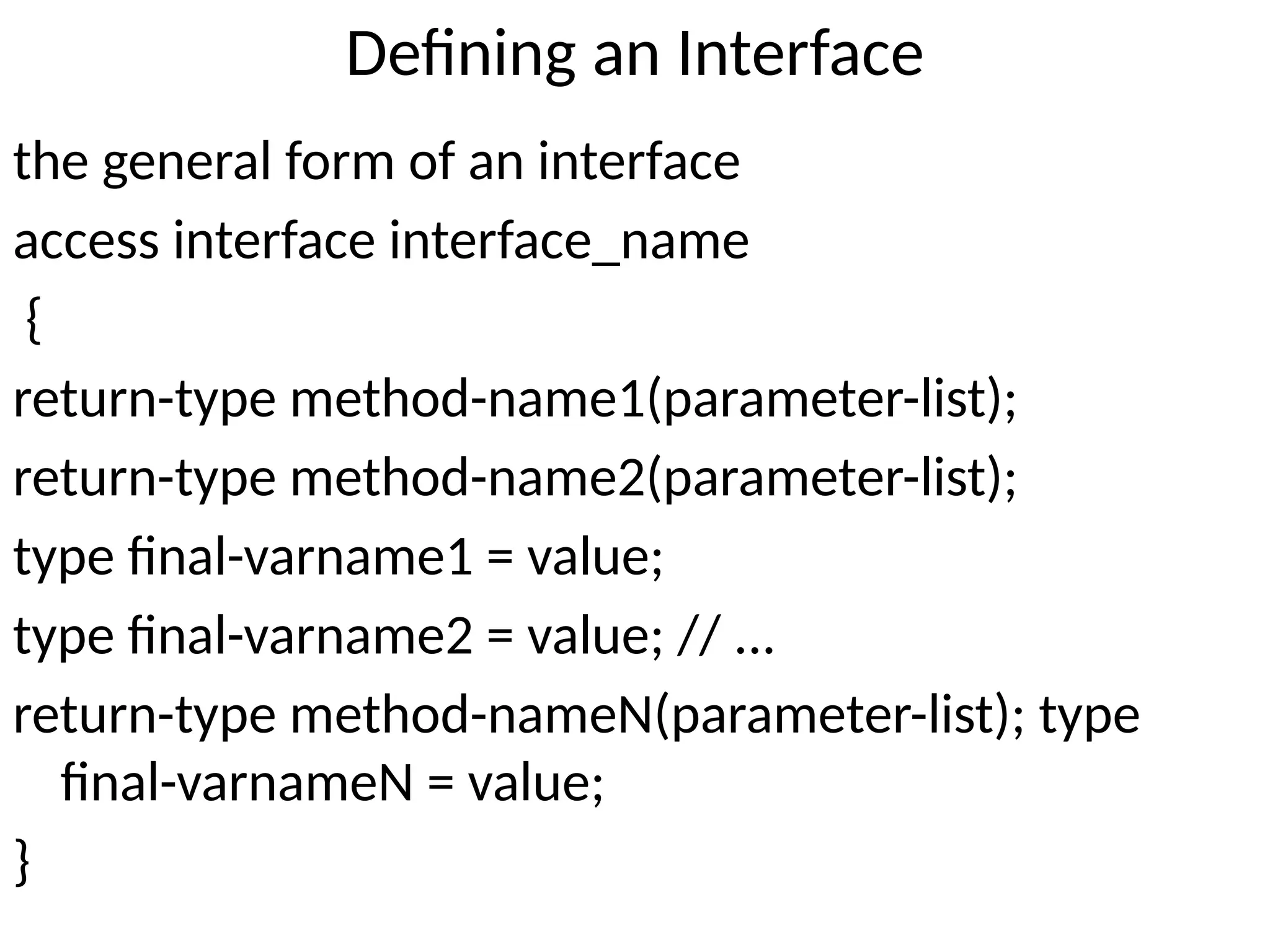
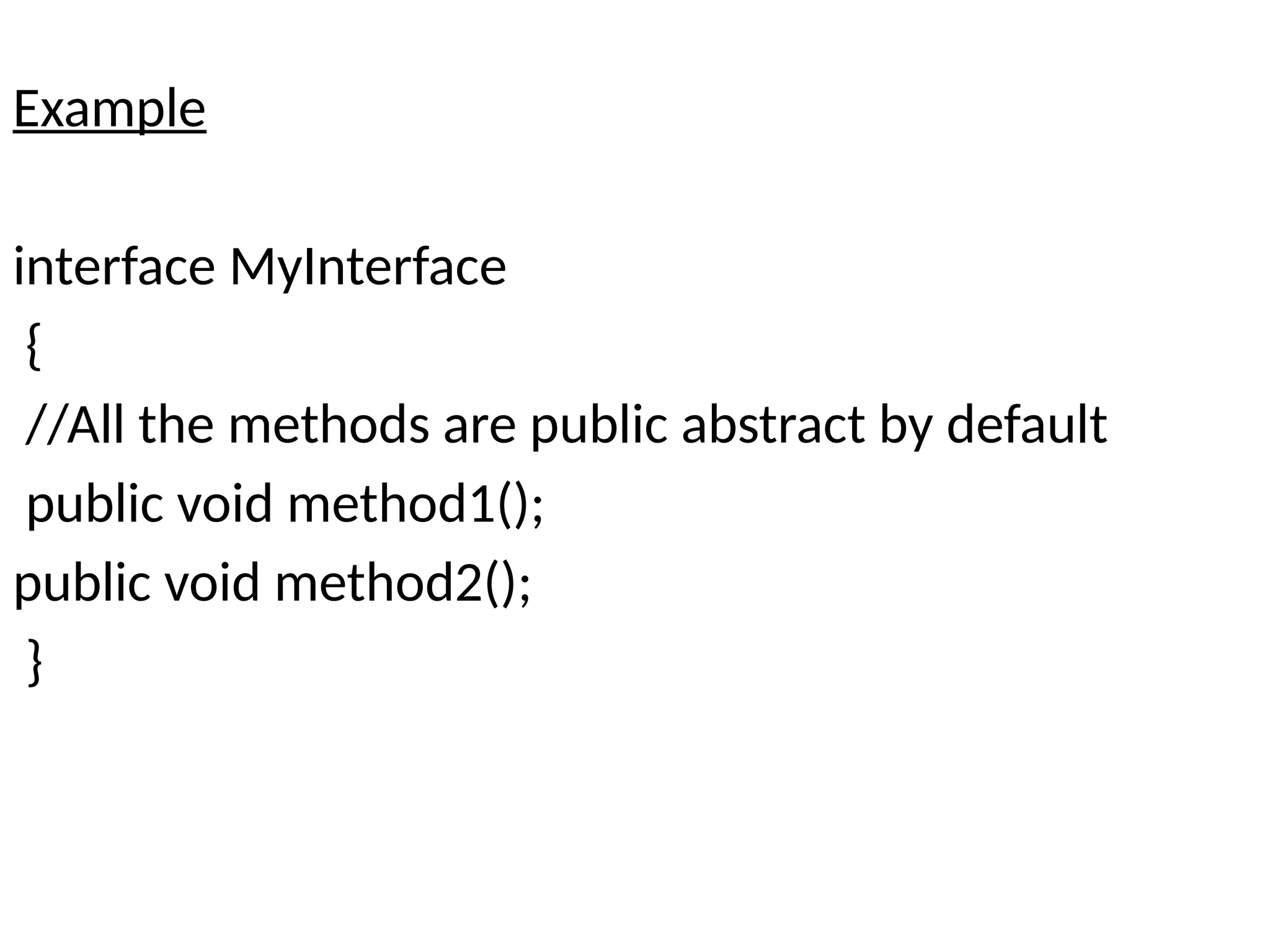
![Implementing Interfaces
To implement an interface, include the implements
clause in a class definition, and then create the
methods defined by the interface.
The general form of a class that includes the
implements clause looks like this:
class classname [extends superclass] [implements
interface [,interface...]]
{
// class-body
}](https://image.slidesharecdn.com/interface-250212075332-b065161b/75/working-with-interfaces-in-java-programming-4-2048.jpg)
![Example
interface MyInterface
{
public void method1();
public void method2();
}
class XYZ implements MyInterface
{
public void method1()
{ System.out.println("implementation of method1");
}
public void method2()
{ System.out.println("implementation of method2");
}
public static void main(String arg[])
{
XYZ obj = new XYZ();
obj. method1();
obj. method2();
}
}](https://image.slidesharecdn.com/interface-250212075332-b065161b/75/working-with-interfaces-in-java-programming-5-2048.jpg)
![Accessing Implementations Through Interface References
interface MyInterface
{
public void method1();
public void method2();
}
class XYZ implements MyInterface
{
public void method1()
{ System.out.println("implementation of method1");
}
public void method2()
{ System.out.println("implementation of method2");
}
public static void main(String arg[])
{
MyInterface obj = new XYZ();
obj. method1();
obj. method2();
}
}](https://image.slidesharecdn.com/interface-250212075332-b065161b/75/working-with-interfaces-in-java-programming-6-2048.jpg)
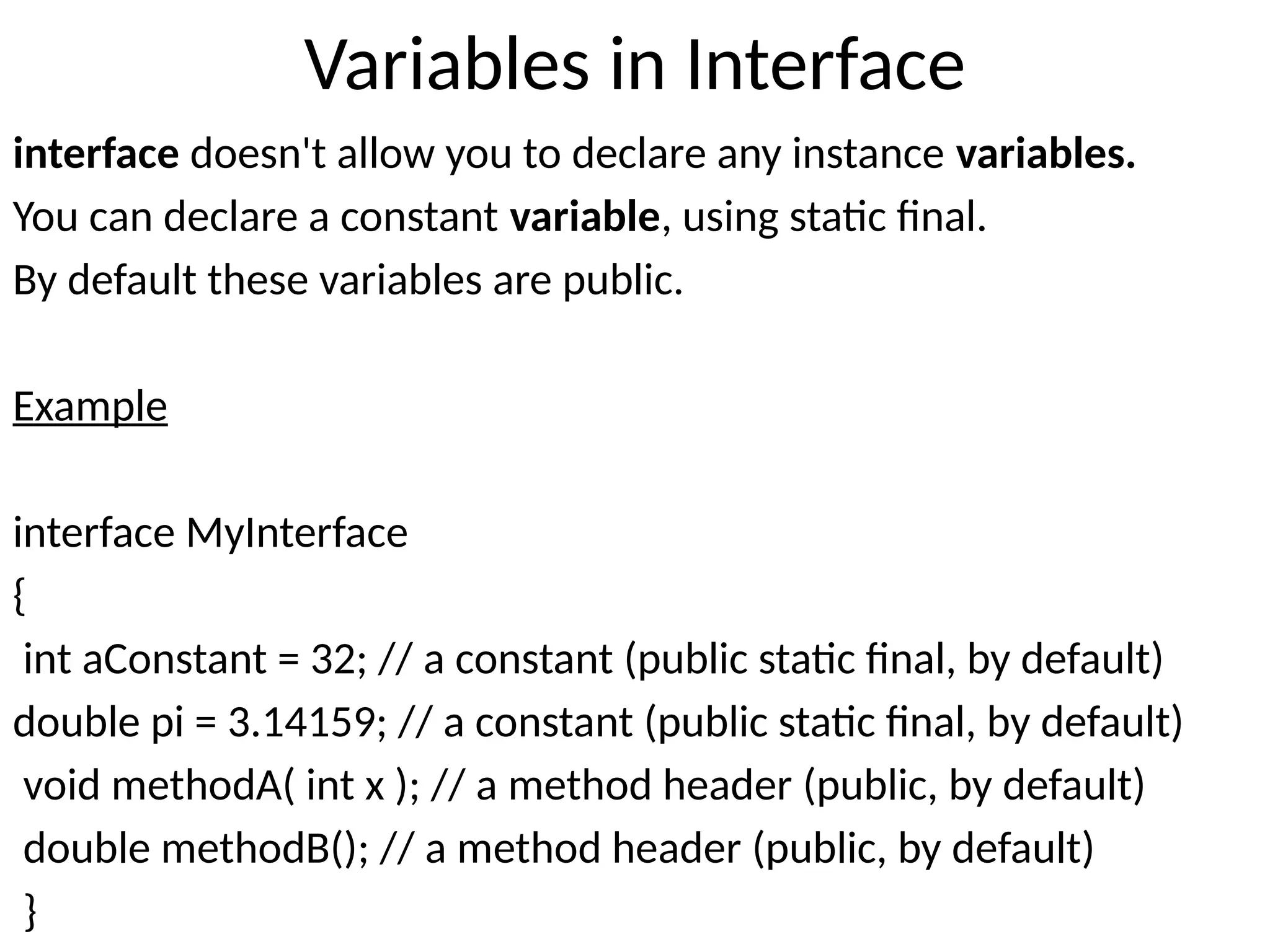
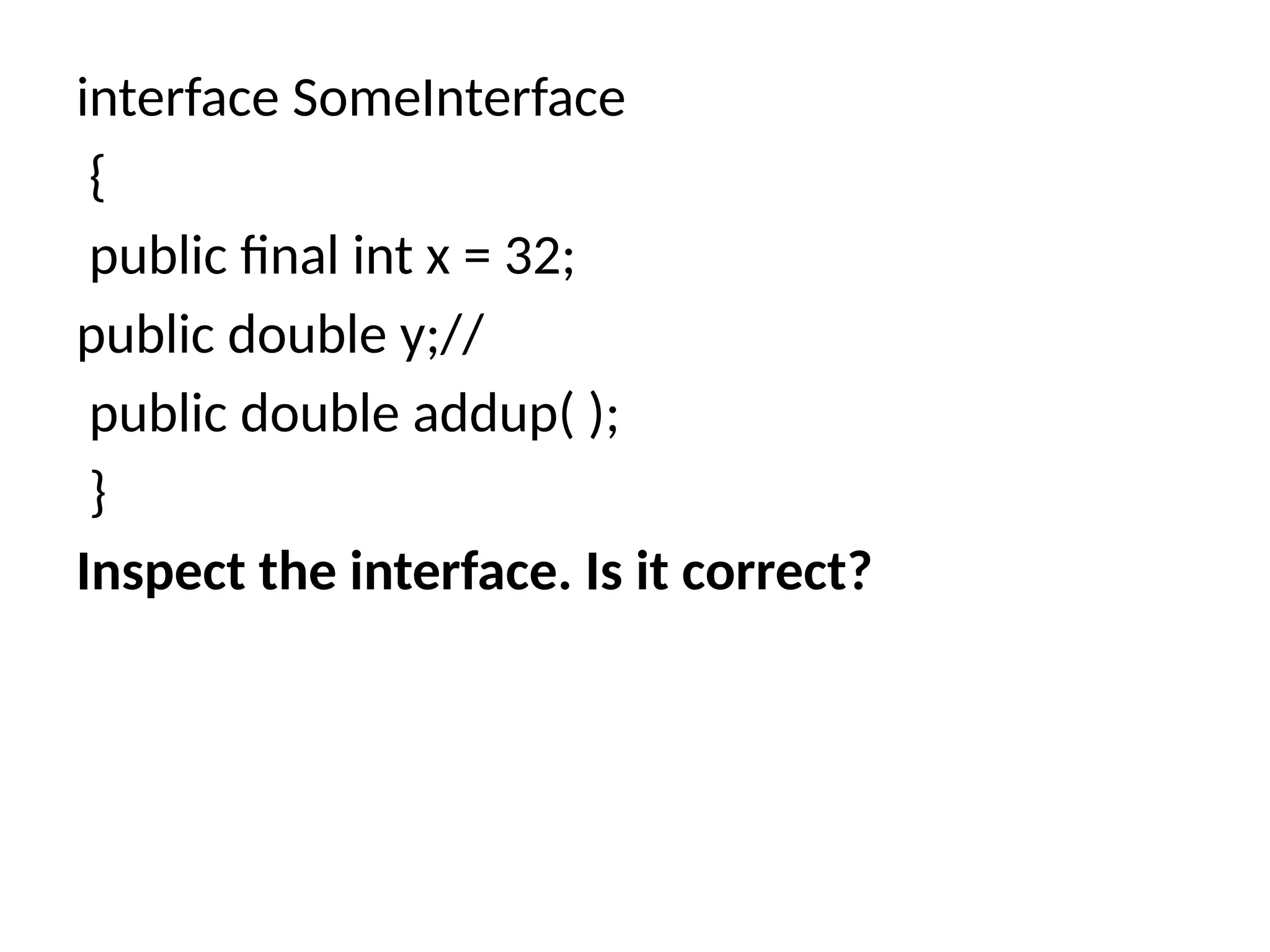
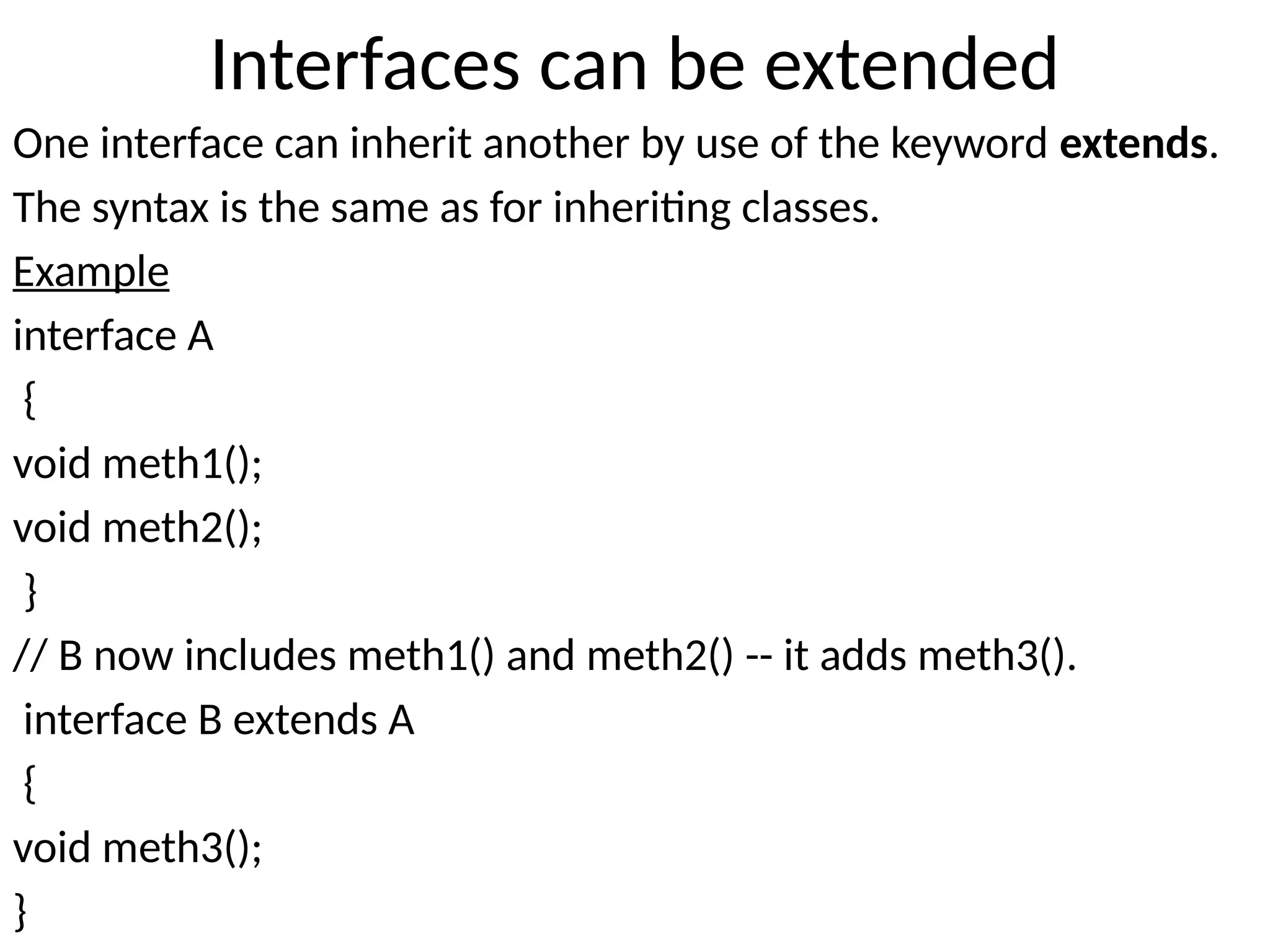
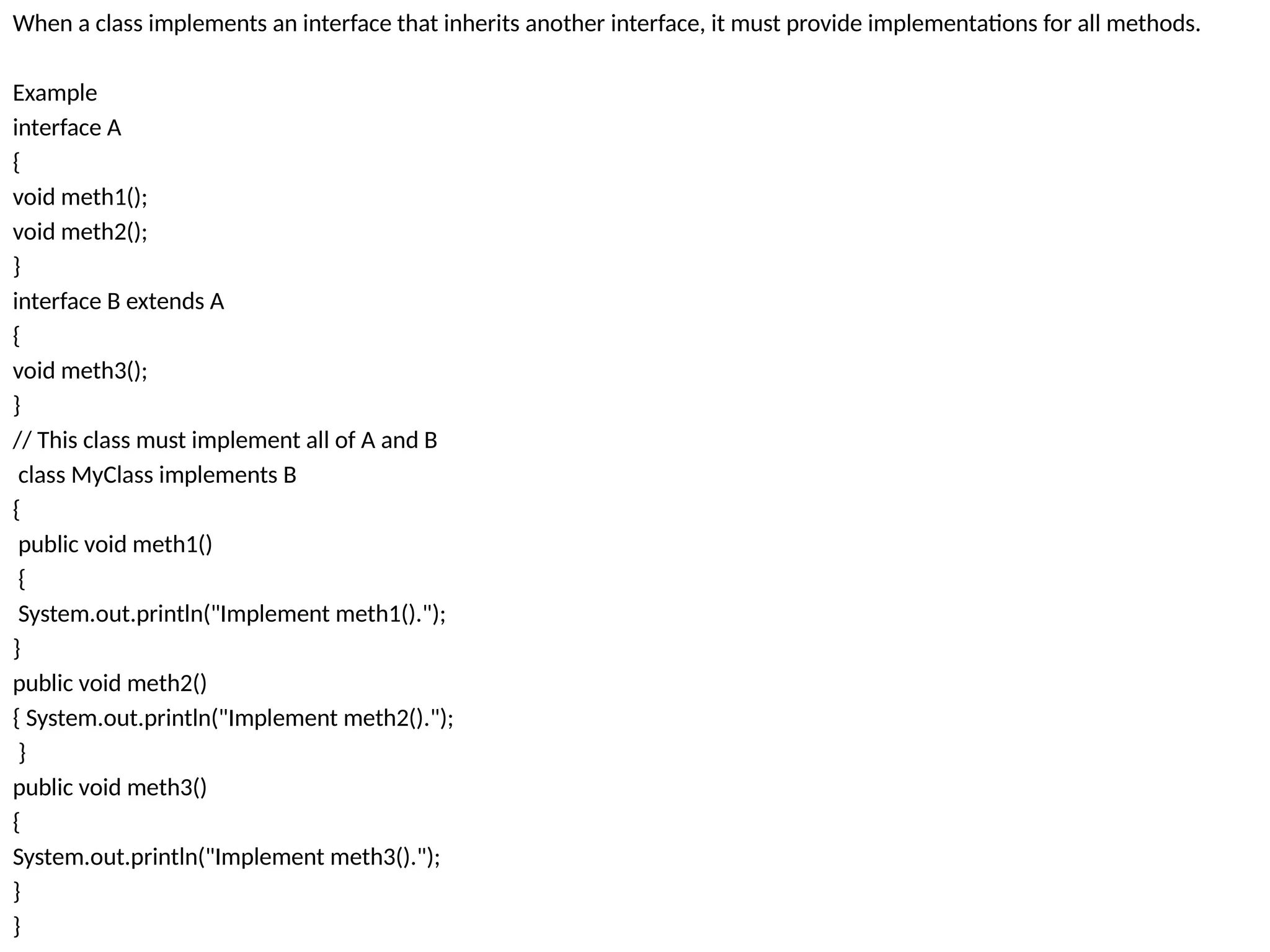
![class InterfaceExtend
{
public static void main(String arg[])
{
MyClass ob = new MyClass();
ob.meth1();
ob.meth2();
ob.meth3();
}
}](https://image.slidesharecdn.com/interface-250212075332-b065161b/75/working-with-interfaces-in-java-programming-11-2048.jpg)